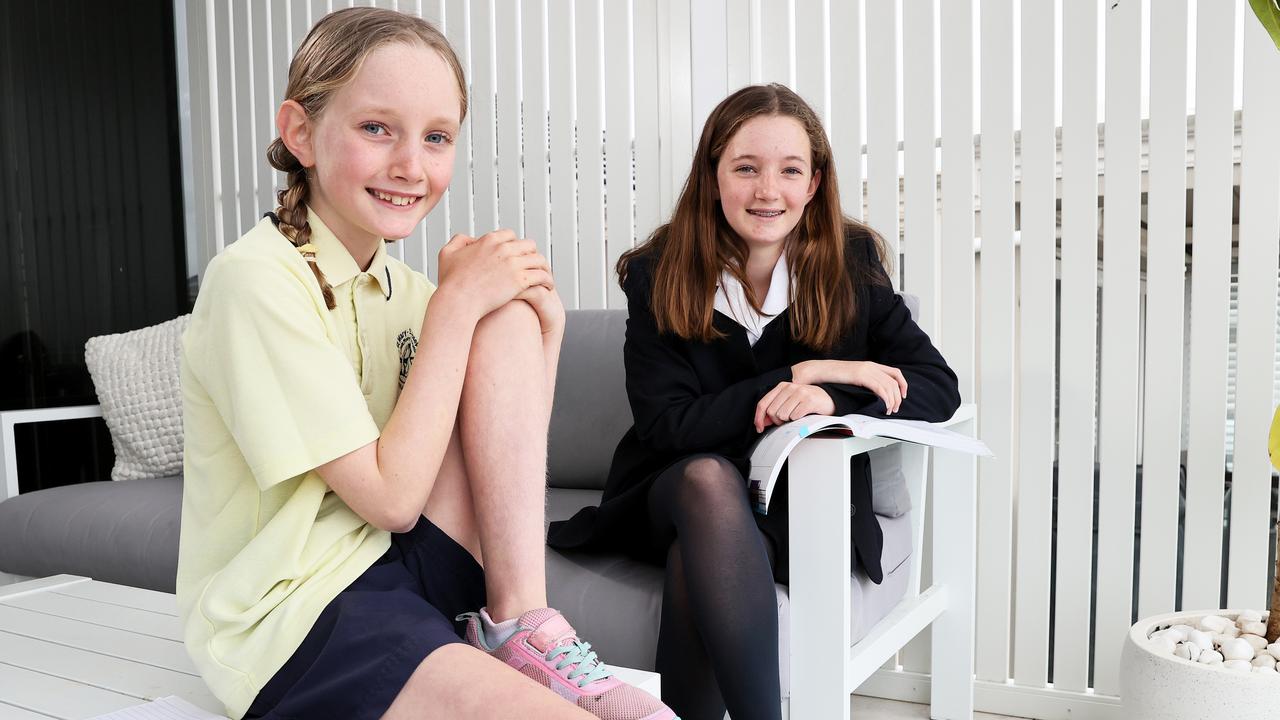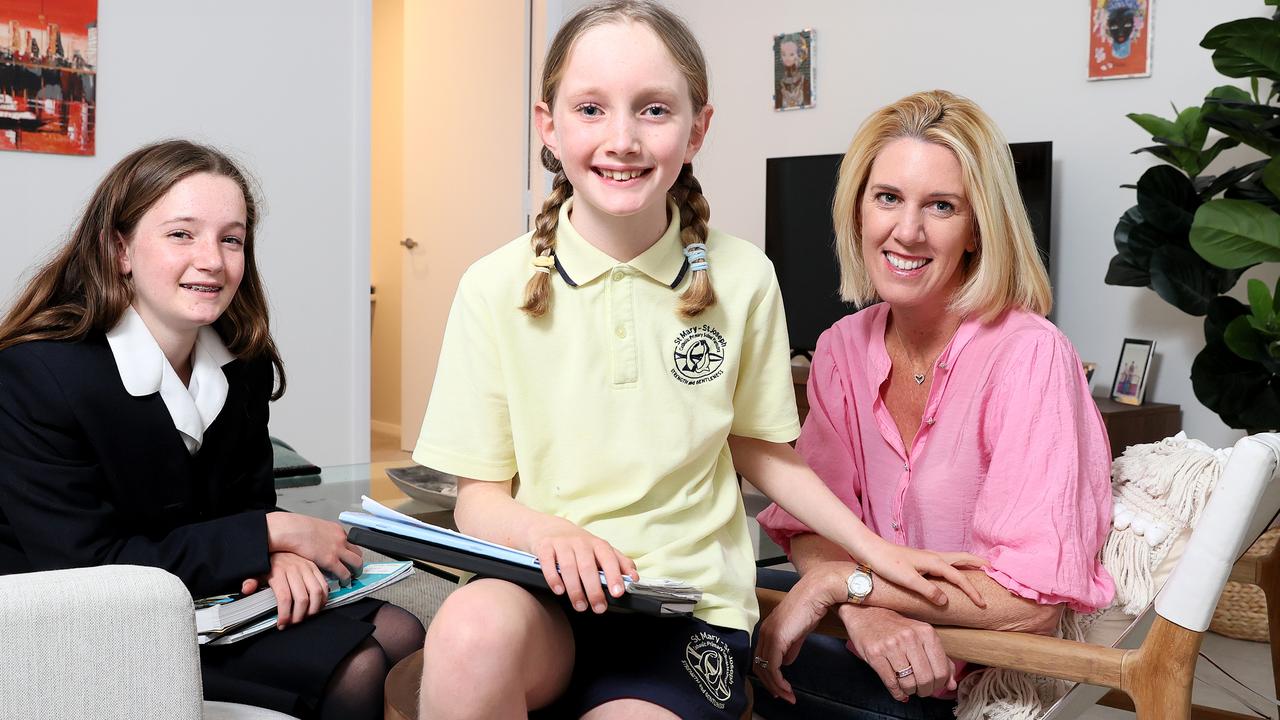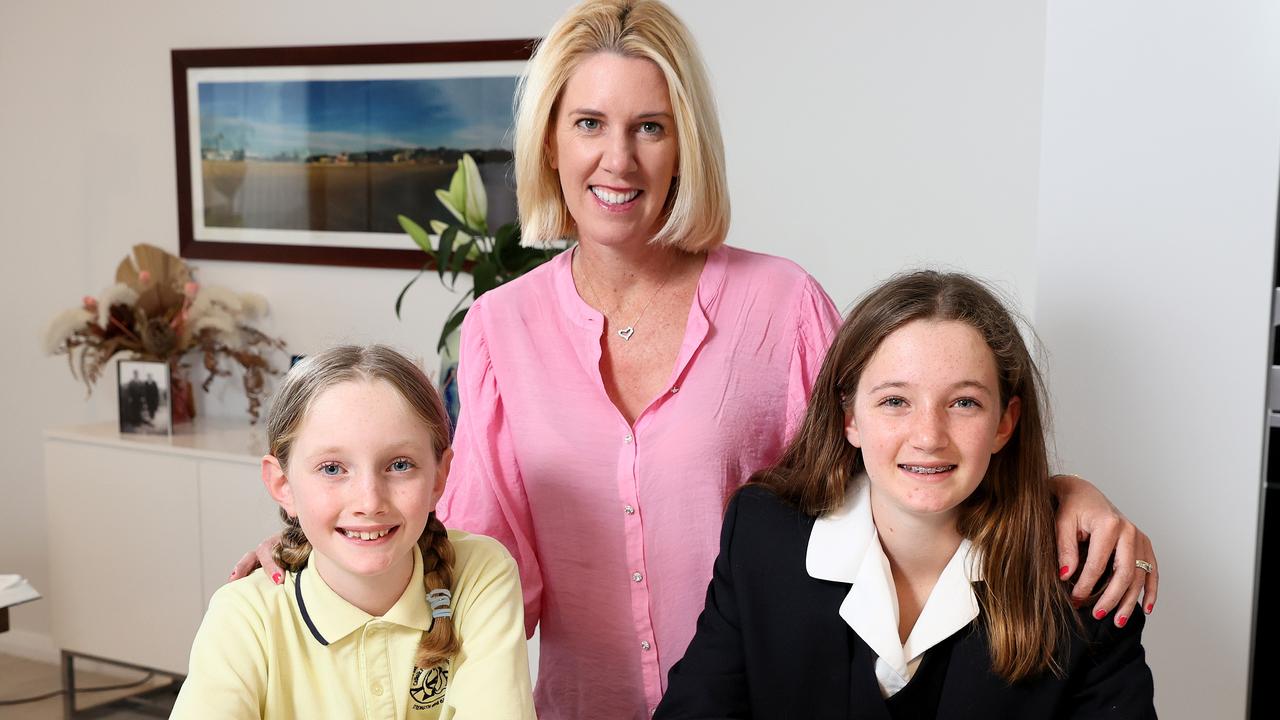NSW Year 9 students return worst NAPLAN reading test results ever
Year 9 students returned their worst results for reading in the latest NAPLAN tests, with many unable to reach the national standard.
The state’s Year 9 students have recorded their worst performance for reading in NAPLAN examinations since the tests began, with one in 10 pupils now unable to reach the national minimum standard when it comes to the discipline.
The latest results show the percentage of students reading at a National Minimum Standard level declined by 4.7 percentage points from 94.4 per cent of all NSW students in 2008 to 89.7 per cent of students this year, despite government spending on education more than doubling in that period.
But in some good news for the state, the preliminary NAPLAN data released by the Australian Curriculum and Reporting Authority on Wednesday said children in Year 3, Year 5 and Year 7 had results which were not significantly different to those in 2019 before schooling across the state was disrupted by Covid.
When it came to Year 9 reading, education author Dr Kevin Donnelly said the National Minimum Standard was a low bar and he believed that more students were struggling with the basics than was previously thought.
“They have kind of dumbed it down, the bar has been set so low so more kids can reach the minimum but there is also a higher percentage of kids who are at risk when measured by other international tests,” he said.

Dr Donnelly said a range of factors were responsible for the alarming drop while the current obsession with making the curriculum delve into politically correct topics was not helping matters.
“(The) more time spent on PC stuff means less time for essential knowledge and skills,” he said.
He said Year 9 students may still be suffering the consequences of how they were taught to read in primary school and the increase in technology.
“A lot of the kids in Year 9 would have been in primary school when they used the whole language approach to teaching reading, so a lot of boys in particular would now be in Year 8 and Year 9 and Year 10 who were not given an effective reading program based on phonics,” he said.
Under the phonics approach to reading, children are taught letters correspond with certain sounds to decode words while the whole language style tells children to identify words based on their literary context.
Dr Donnelly also said students learnt to read better when they read on physical paper rather than screens. This year, 870,000 children across the nation did the NAPLAN test online via screen.
“Australia has relied heavily on digital technology with laptops and computers and desktops and moving away from the printed word does not help because students have to read printed text to have a better chance of understanding it,” he said.
However, an ACARA spokeswoman said the results appeared to show school closures forced by Covid-19 last year did not appear to have had a significant impact on academic performance. “It’s the good news many of us need to hear right now and it’s testimony to the resilience of students, teachers, parents and carers during these challenging times,” she said.
“Some might find this surprising but it’s important to note this is big picture data and there are likely to be some students who have been affected. We hope to be able to see more of those insights in the full report later in the year, and some of the states and territories will have their own detailed data insights.”

Education Minister Sarah Mitchell said as she had previously announced, schools could continue to use tutors to help students catch up.
“Across the board, our students have performed at a similar or better level to previous years, which is a great result considering the circumstances of a pandemic,” she said.
“Year 9 students had a slight decline in reading. Schools have been using tools designed to identify where students are struggling and to help them catch up. These include our Covid tuition program and online check-in assessments.”
Centre for Independent Studies education expert Glenn Fahey said the data revealed that attention needed to be focused on all year groups during Covid school closures. “A lot of the attention was at the extremes because young kids need so much more guidance and at the other end there were HSC exams,” he said.
“But there was that missing middle of students who have probably not been front and centre for policymakers and it could be a wake-up call that some students have an unmet need for learning losses that weren’t anticipated, given that most people were focusing attention on the early years and the later years.”
When NAPLAN started in 2008, the NSW government allocated $11.2 billion in its budget for education and training over four years, jumping to $24.4 billion in last year’s budget.

Maroubra mum Lysa McKenna said she welcomed the positive news for the younger years, but said for her daughters Tilly, 8, who is in Year 3, and Year 7 student Sally, 12, homeschooling was no substitute for teachers.
“The kids are doing all of their schoolwork but parents don’t have the skills that educators do to make sure what they’re doing is correct because they are all a bit short on time,” she said.
“They are plugged into their computers for most of the day doing online learning, there is not a whole lot of support we can give them, you have to just hope for the best.”
The ACARA data is preliminary and statisticians are yet to decide if the latest percentage drop is statistically significant.
More Coverage
Originally published as NSW Year 9 students return worst NAPLAN reading test results ever




